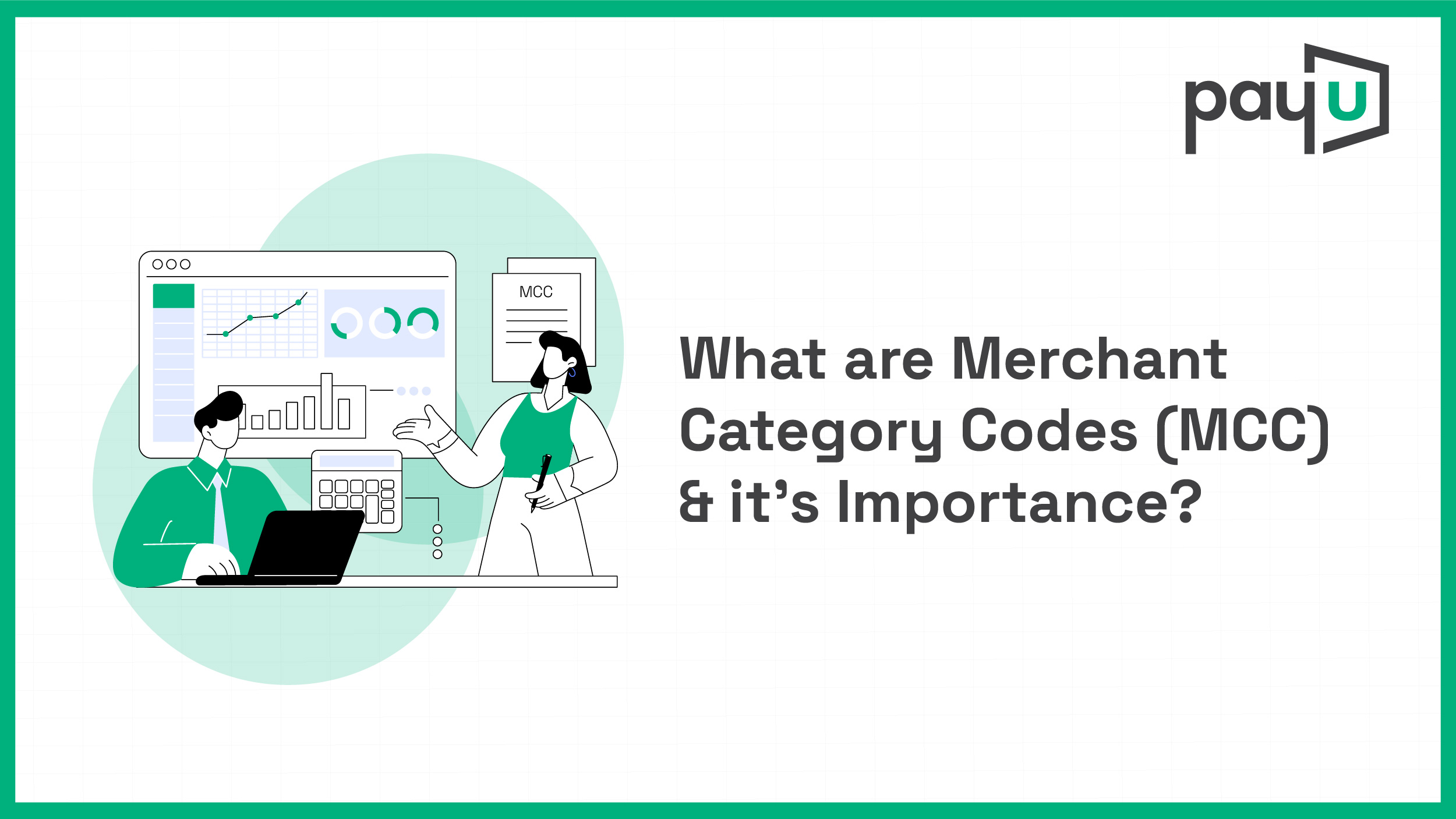
Understanding Merchant Category Codes (MCC) & Its Impact on Business
When you enter your debit or credit card details online, you might notice how the system instantly recognizes the type of card. If a website only accepts credit cards, debit card transactions are automatically declined. This happens because the payment gateway identifies the card category based on its number.
A similar process occurs when a transaction is completed between merchants. Here, the card companies use the Merchant Category Code (MCC). What is MCC? What is the purpose of using this code, and why is it important for your business? Let’s understand.
Table of Contents
What Is MCC?
Merchant Category Codes are 4-digit numbers that classify businesses based on the types of goods or services that they offer. Payment networks like Visa, Mastercard, and American Express assign MCC codes to merchants to standardize transactions and ensure accurate processing.
MCC codes categorize businesses based on their industry type. Some businesses clearly belong to a particular industry, like a beverage business, which will be labelled as an FMCG business. The few others that cannot be placed under a specific sector are placed under the miscellaneous category.
MCC codes are standardized by the ISO (International Organization for Standardization) to ensure uniformity. However, while adhering to the ISO standard, different card networks implement and use the MCCs within their own systems. So, it is possible that the VISA MCC code may differ from the one used by Mastercard. Therefore, slight differences can exist in how each network uses and implements the codes.
Based on the subtle differences that may exist, the codes are used in a range for each category. The codes are as follows:
| Code Range | Category of Business |
| 0001–1499 | Agricultural Services |
| 1500–2999 | Contracted Services |
| 3000–3299 | Airlines |
| 3300–3499 | Car Rental |
| 3500–3999 | Lodging |
| 4000–4799 | Transportation Services |
| 4800–4999 | Utility Services |
| 5000–5599 | Retail Outlet Services |
| 5600–5699 | Clothing Stores |
| 5700–7299 | Miscellaneous Stores |
| 7300–7999 | Business Services |
| 8000–8999 | Professional Services and Membership Organizations |
| 9000–9999 | Government Services |
How Merchant Category Codes Work?
When a business registers with a payment gateway, it is assigned an MCC code according to its operations. This classification is essential for card networks and payment for several reasons:
- Interchange Fees & Transaction Costs:
Card networks use merchant category codes to find out the interchange fees that businesses must pay for processing transactions. Some industries, like grocery stores, qualify for lower rates, while high-risk industries, such as online gaming or cryptocurrency, face higher interchange or transaction fees.
- Consumer Rewards & Cashback Programs:
Credit card companies offer different rewards, cashback, and benefits depending on the MCC code assigned to a merchant. For instance, a restaurant purchase (MCC 5812) might earn extra cashback on a dining-focused credit card. At the same time, a transaction at an electronics store (MCC 5732) may be eligible for a different reward.
- Risk Assessment & Fraud Prevention:
Financial institutions use MCC codes to track their spending patterns and detect fraudulent activities. This is especially useful for banks to impose stricter monitoring or approval requirements on transactions involving MCCs that are associated with higher fraud risk sectors.
Read more – Types of Merchant Frauds and Ways to Tackle It
- Regulatory & Tax Compliance:
Governments and tax authorities rely on MCC codes for categorizing expenses and enforcing tax regulations. Some purchases may qualify for tax exemptions or deductions based on their MCC classification.
Since MCC codes impact everything from transaction costs to fraud prevention, they are an integral part of how card networks operate. But do they also affect your business operations?
Why MCC Codes Matter for Your Business
MCC helps your business be placed in the right category of tax regulatory requirements and cashback and reward programs for the card. Apart from these, the financial landscape of your business is affected by the following aspects-
- Spending Controls & Expense Management:
MCCs allow businesses to set spending restrictions for employee cards or corporate expense programs. For example, a company can limit card usage to specific MCC categories, such as travel-related expenses, ensuring purchases align with business needs.
- Cross-Border Transactions:
If you operate internationally, your code affects how transactions are processed across different payment networks. Some MCCs may be restricted in a few countries, affecting your ability to accept payments globally. This is why understanding the Visa MCC codes and their international implications can help you plan for better cross-border transaction processing.
Where To Find The Merchant Category Code?
The payment merchants assign the merchant category code. To find your business’s MCC code, you need to contact the payment processor or look for the code in your monthly merchant statement (a summary of your transactions). You can also refer to different industry sources like online forums or trade groups, to identify the merchant category code.
You can verify your assigned MCC code through a merchant category code lookup provided by your payment gateway or card network. And if you get an incorrect code, notify your payment processor to avoid any possible higher transaction fees or being labeled as a high-risk business.
Conclusion:
Understanding Merchant Category Codes is a small but significant detail that can considerably impact your business’s financial operations. It is thus important to ensure your merchant category code is accurate in order to optimize costs and remain compliant with financial regulations.
However, if you’re unsure about your current classification, performing a merchant category code lookup can clarify whether your business is correctly categorized. Understanding MCC codes helps you manage transactions efficiently and minimize unnecessary costs.